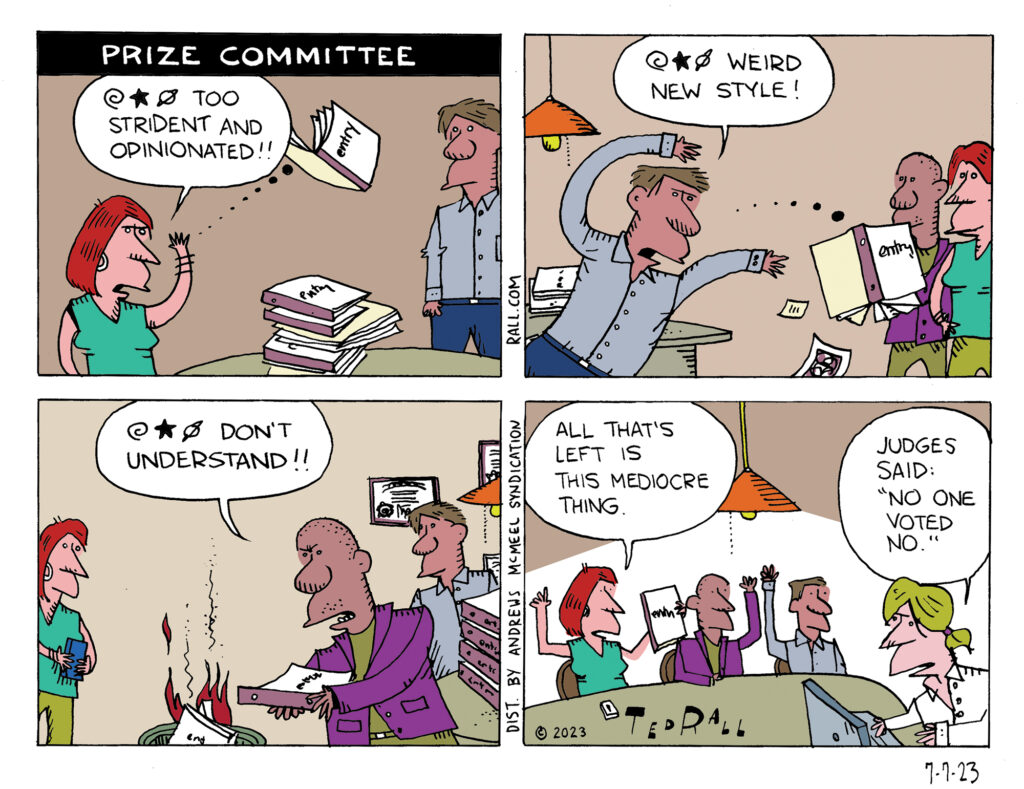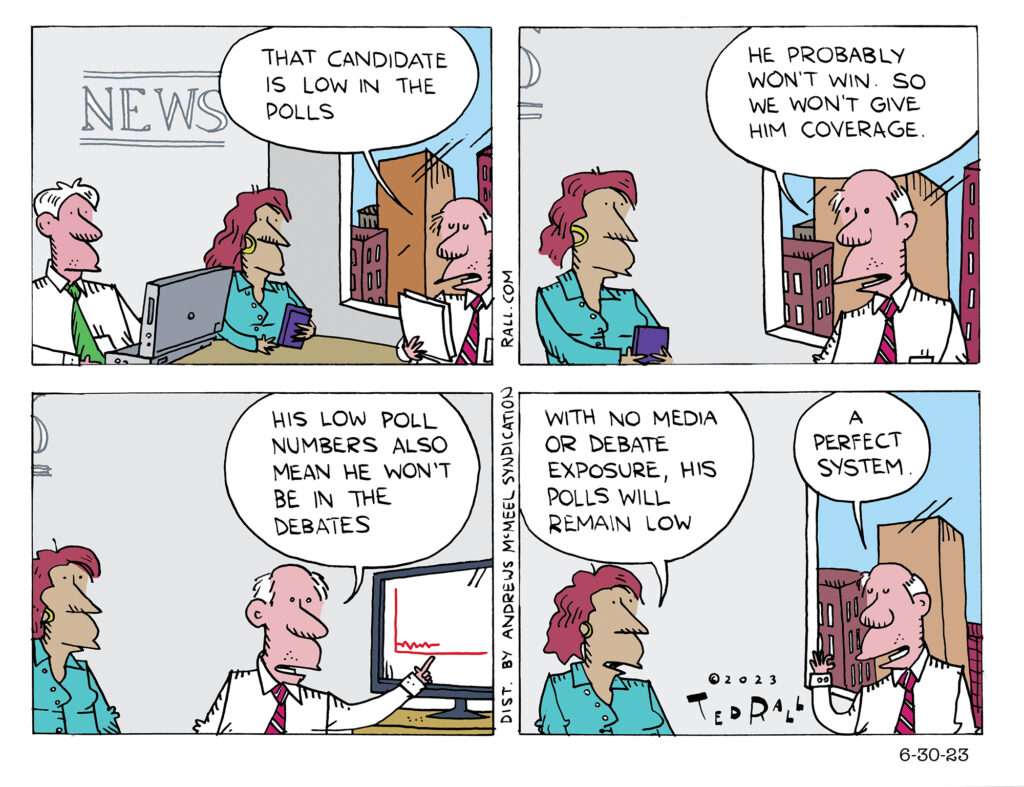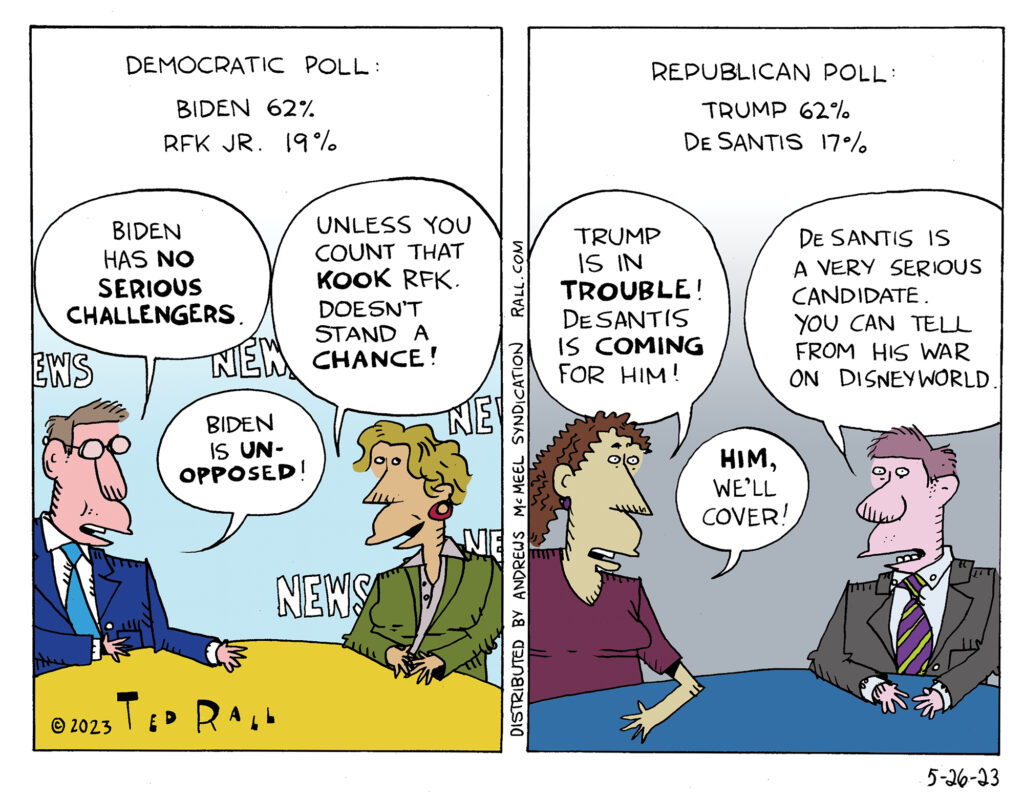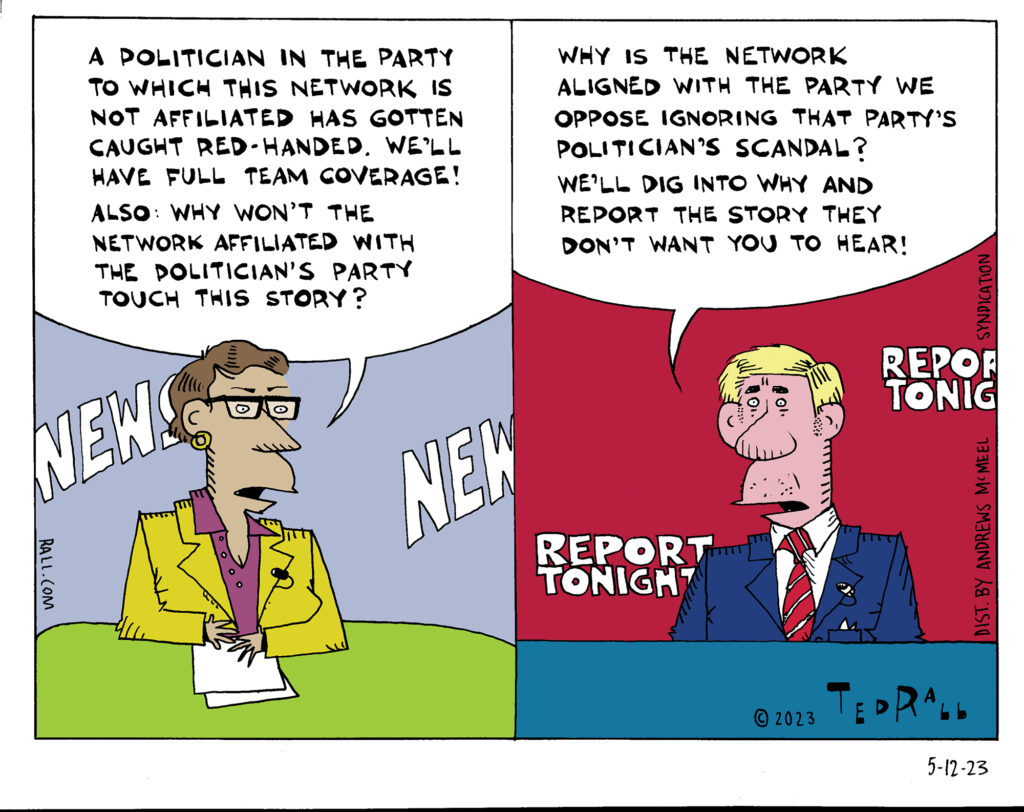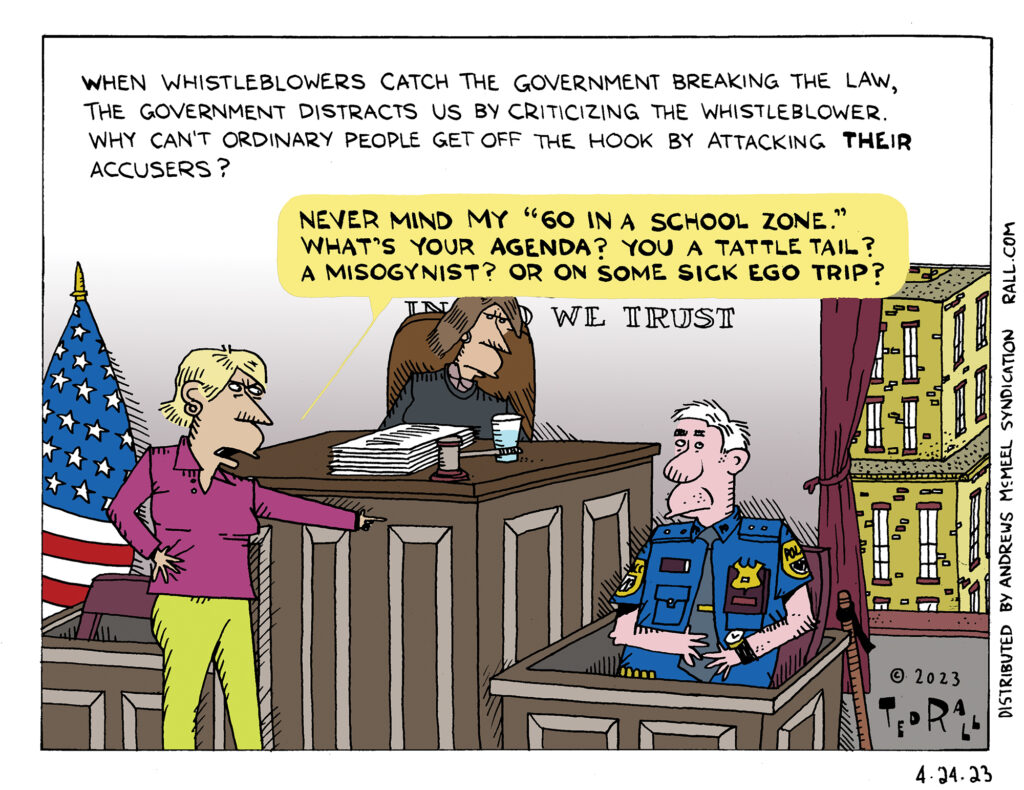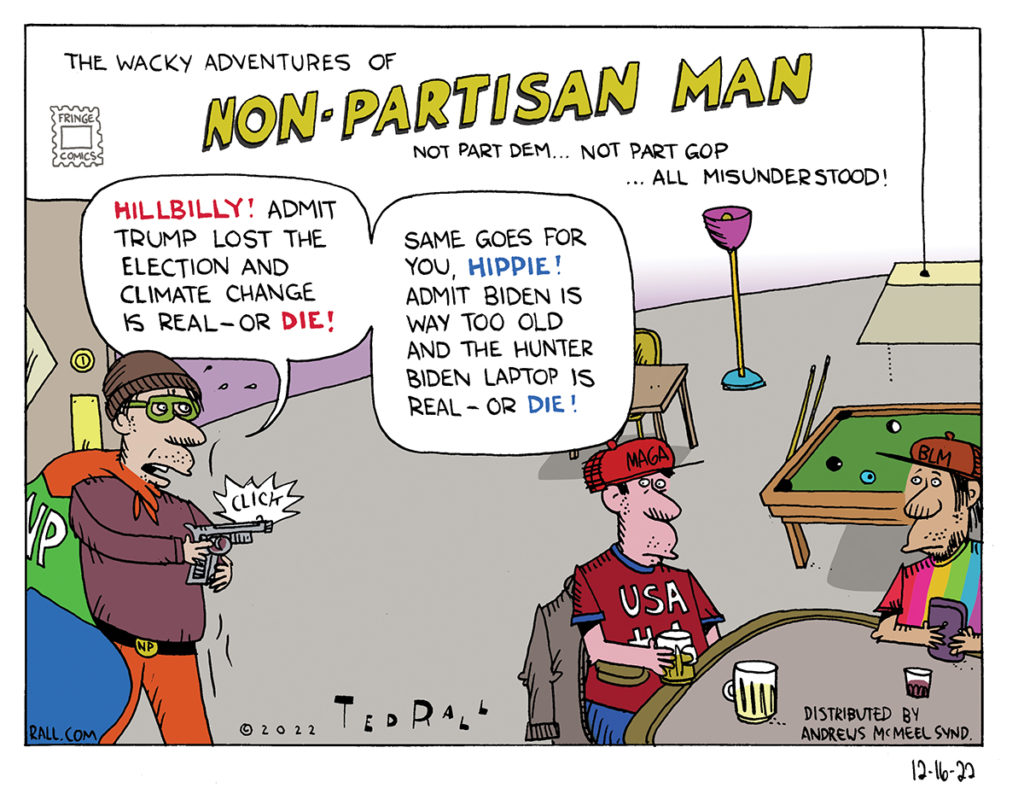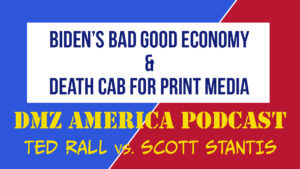 Political Cartoonists Ted Rall (from the Left) and Scott Stantis (from the Right) discuss the week in politics, current events and culture. This time, the guys start out wondering about the state of the economy and the 2024 presidential campaign. Though Biden has pulled ahead of Trump in national polls, key swing states Biden needs to win continue to support Trump. One of the big reasons give is that they’re unhappy with the state of the economy. But unemployment is low, wages are high and inflation is easing. Why are Americans pissed? We have answers.
Political Cartoonists Ted Rall (from the Left) and Scott Stantis (from the Right) discuss the week in politics, current events and culture. This time, the guys start out wondering about the state of the economy and the 2024 presidential campaign. Though Biden has pulled ahead of Trump in national polls, key swing states Biden needs to win continue to support Trump. One of the big reasons give is that they’re unhappy with the state of the economy. But unemployment is low, wages are high and inflation is easing. Why are Americans pissed? We have answers.
The month of January saw major layoffs at legacy media companies like the Wall Street Journal, Los Angeles Times, Sports Illustrated and Pitchfork. Is there a future for journalism, and if so what does it look like?
Watch the Video Version: here.

